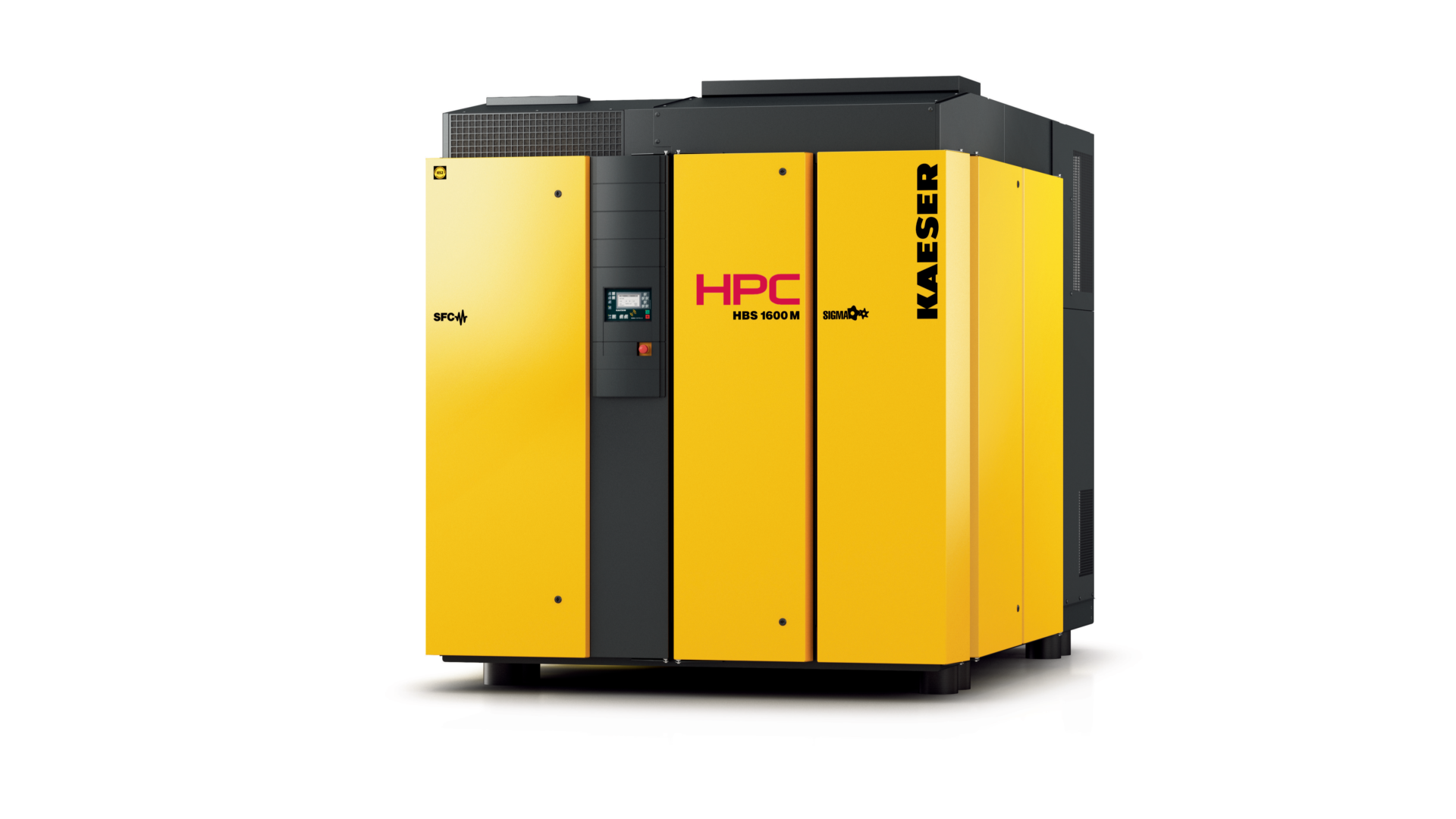Energy efficiency is becoming an ever more important factor in wastewater treatment. But the treatment plant at Lüneburg in Germany also wanted a solution capable of delivering a stable supply of air under fluctuating weather conditions. An HPC KAESER rotary screw blower was installed, which in addition to a clear reduction in energy costs, provided the results they were looking for.
The wastewater treatment facility at Lüneburg, in Germany, is designed to cater for the needs of around 325,000 inhabitants. It features a number of clarification tanks with depths of up to 7 m, into which the air required for the biological treatment procedure is delivered via a diaphragm control valve.
Until recently, four classic turbo blowers each equipped with a 200kW motor, were used to provide the compressed air for this aeration system. However, the operator was looking for a solution that would enable them to control compressed air production in a more direct and dynamic fashion, with a broader control range. They also sought to achieve a more constant air delivery that would remain unaffected by extreme weather conditions.
By measuring and documenting the air mass flow generated and the associated power consumption, the impact of installing the new rotary screw blower very soon become apparent.
Rotary screw blower in perfect harmony with turbo blowers
The rotary screw blower at Lüneburg was subjected to a one-year maximum usage trial. As the facility’s master control system was set up to control the turbo blowers by means of adjustments to their guide vanes, it was necessary to adapt the software to be able to operate the rotary screw blower using speed control. When the rotary screw blower reaches a pre-specified speed limit, the control system switches a turbo blower on or off as needed to prevent inefficient overlapping.
Thanks to adjustable ramp-up times, powering the rotary screw blower up and down does not result in pressure peaks that could damage the turbos. A head-to-head performance comparison is simple, since the rotary screw blower directly replaces a turbo with 4000 – 9000 m³/h, in operation for almost 24 hours, for 12 of which it runs standalone.
Up to 15 percent energy savings
In the eyes of the operator, even more important than the potential energy savings was the challenge of making the air delivery more precise and more constant; a goal which was achieved thanks to significantly more dynamic control behaviour and the fact that, with positive displacement compressors, the flow rate fluctuates far less at varying inlet pressures and temperatures than it does with turbos.
This means that, even under extreme weather conditions, the electronic controller can adhere to the required process values. What is more, a significant reduction in the influence of pressure fluctuations on the machine’s control behaviour very quickly became apparent, which also served greatly to simplify control. On top of a marked improvement in process management, a significant amount of energy could now be saved thanks to continuous measurement of the air mass flow and performance.
The rotary screw blower, operating in conjunction with the turbo blowers, also made its presence felt when it came to the question of overall power consumption: it transpired that around 250,000 kWh could be saved annually, which corresponds to around 10 to 15 percent, depending on the total annual requirements.
The Lüneburg wastewater treatment plant has scored a major victory thanks to its openness to new technologies. It is now reaping the rewards in the form of efficient, intelligently controlled coverage of its compressed air needs.



